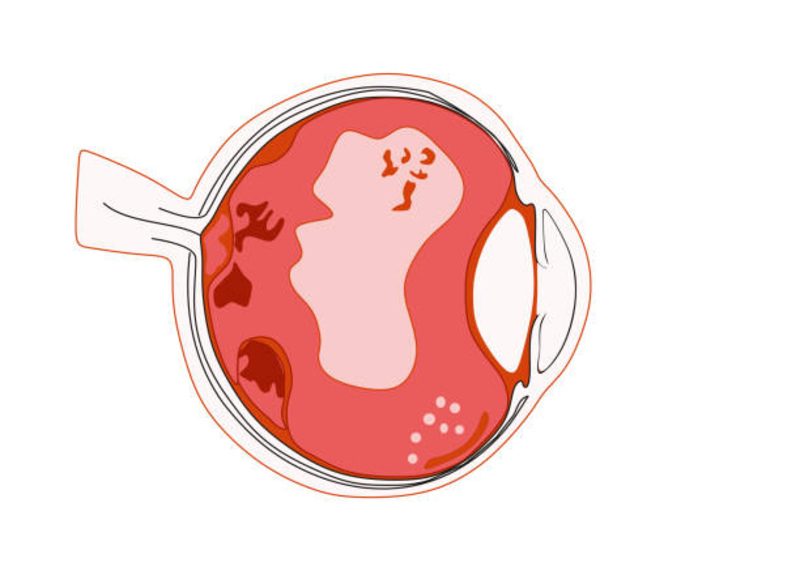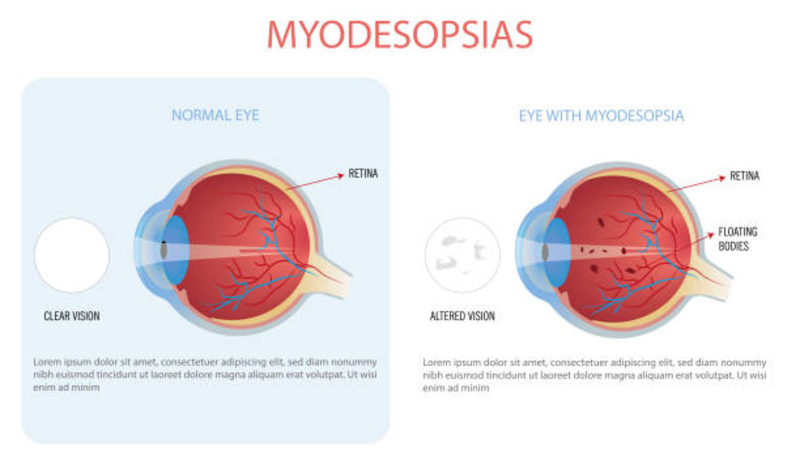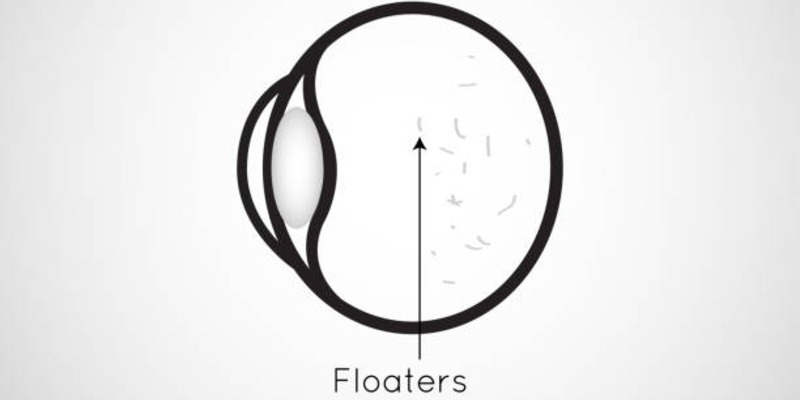Eye floaters are a common complaint among many people. They can be bothersome and impact your vision, but often, the cause is unknown making it difficult to know how best to treat them. But understanding what eye floaters are, their potential causes and symptoms can help you navigate what treatment may be necessary. In this blog post, we will explore these topics more in depth with an ophthalmologist to better understand eye floaters and how they should be addressed for optimum eye health.
What are eye floaters?
Have you ever noticed small spots or cobweb-like shapes floating around in your field of vision? Those are known as eye floaters, and they are quite common. Eye floaters are tiny clumps of gel that form in the vitreous - the clear, jelly-like substance that fills the back of your eyeball.
What are the most common causes of eye floaters?
The most common cause of eye floaters is age-related vitreous detachment. As we get older, the vitreous gel that fills our eyes begins to shrink and clump up, which can cast shadows on the retina. This process is known as “mydriasis” or vitreous floaters. Other causes include inflammation of the eye, bleeding in the eye, and eye injury or trauma.
How to identify common symptoms of eye floaters?
Some common symptoms include;
- Seeing spots or cobweb-like shapes
- Experiencing flashes of light
- Having difficulty seeing clearly
If you’re experiencing any of these symptoms, it’s important to have your eyes checked by an optometrist to rule out any serious underlying conditions.
Different types of treatments available:

Eye floaters can be treated in different ways depending on the type and severity of the condition. Some treatments may include:
- Laser Therapy: A low-energy laser is aimed at the area with floaters, breaking them up into smaller pieces. This can lead to a decrease in size or visibility of the floater, although it may take several months for the full effect to be achieved.
- Vitrectomy: A vitrectomy is a surgical procedure which involves removing the natural gel in the back of your eye and replacing it with a clear, salt water solution. This can help reduce floaters that are caused by abnormalities in the gel which exists naturally.
- Anti-Vitreous: This is a type of medication that blocks the activity of the vitreous gel in your eye, reducing its ability to cause floaters.
What to expect when visiting an ophthalmologist for diagnosis and treatment?
When visiting an ophthalmologist for diagnosis and treatment, you can expect to be greeted by knowledgeable and friendly staff who will guide you through the process. You will be asked about your medical history and any symptoms you are experiencing regarding your eyes. The ophthalmologist will then conduct a comprehensive eye exam that may include;
- Tests for visual acuity
- Color blindness
- Eye muscle function
- Eye pressure
Depending on the outcome of the exam, the ophthalmologist may recommend additional tests or procedures. If you require treatment, the ophthalmologist will discuss your options and help you to make an informed decision about what works best for you.
How to reduce the chances of developing floaters in the future?

Floaters are a common occurrence for most people, but there are steps you can take to reduce the chances of developing them in the future.
- It's important to maintain a healthy lifestyle that includes a balanced diet and exercising regularly. This will help keep your eyes in optimum condition and reduce the likelihood of developing eye-related conditions.
- It's crucial to protect your eyes from harmful UV rays by wearing sunglasses, and avoiding excessive exposure to bright lights.
- It's recommended to take regular breaks from electronic screens to prevent eye strain.
Conclusion:
Nothing is morestressful or concerning than noticing a change in one's vision, especially something as strange as eye floaters. Through continued developments in modern ocular care, there are several viable treatments that allow for the safe and effective elimination of floaters. Many treatments have minimal to no risk involved with them, and patients should feel confident and informed when selecting the best option for their own personal needs. Ultimately, prevention is key since some of the causes of eye floaters can be linked to lifestyle choices; by being aware of potential risks and avoiding them, individuals can significantly reduce their chances of developing unhealthy eye conditions later in life.







